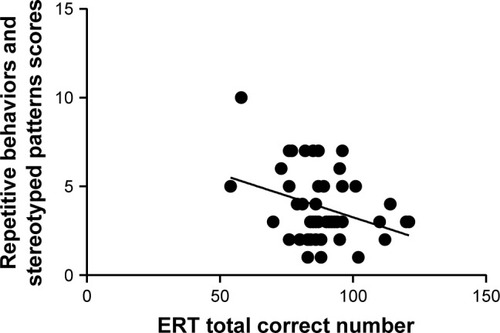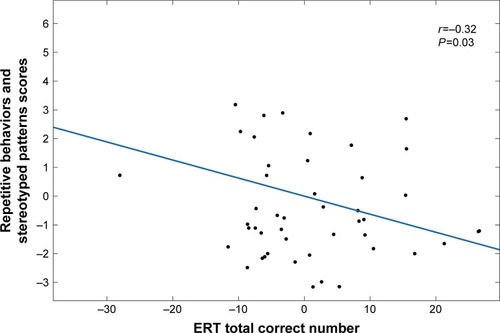Figures & data
Table 1 Demographic and clinical characteristics of ASD and TD children
Table 2 Demographic characteristics and ERT scores of ASC’s and TDC’s parents
Figure 1 Negative correlation was found between the total number of correct ERT responses for recognizing all six types of emotions by parents of ASD children and these children’s “repetitive behaviors and stereotyped pattern” scores on the ADI-R (r=−0.32; P=0.03), controlled for parental age, gender, and IQ of both the parents and children.

Figure 2 Partial correlation plot showed the negative correlation between the total number of correct ERT responses for recognizing all six types of emotions by parents of ASD children and these children’s “repetitive behaviors and stereotyped pattern” scores on the ADI-R (r=−0.32; P=0.03), controlled for parental age, gender, and IQ of both the parents and children.

